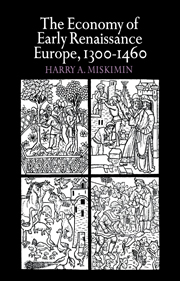5 - GOVERNMENT, PROPERTY, AND THE INDIVIDUAL
Published online by Cambridge University Press: 29 January 2010
Summary
For the articulate and talented few, the Renaissance was a period of opportunity, a time of intellectual upward mobility. It was also to become, however, an era that challenged the traditional hierarchical structure of society and substituted new concepts of social merit for the older, medieval values, which, though not completely rigid, yielded only slowly to change. True, a man of talent and grace could find fortune and reputation—in short, magnificence— more readily in the Renaissance, but, once the stable hierarchy that had guaranteed his humble security was shaken, what was to become of the ordinary being with clumsy hands and dull wits? In retrospect, let us consider that we began with the human soul and the protection of the rights of the individual man in the thirteenth century, and we have arrived at the expansion of the slave trade and a growing trend toward political absolutism in the fifteenth. What were the elements of change and how did they interact?
It is a truism that social change is immensely complex and that it proceeds on many interwoven levels—intellectual, political, religious, artistic, and economic; no simple explanation, no single catalyst, is ever entirely convincing. But in the case of the Renaissance, many scholars have exhibited a curious aversion against recognizing first the fact, and then the inseparability, of the interconnections among the various forms of social consciousness and activity. But all factors were relevant, and their interactions both real and intense.
- Type
- Chapter
- Information
- The Economy of Early Renaissance Europe, 1300–1460 , pp. 164 - 170Publisher: Cambridge University PressPrint publication year: 1975
- 1
- Cited by



